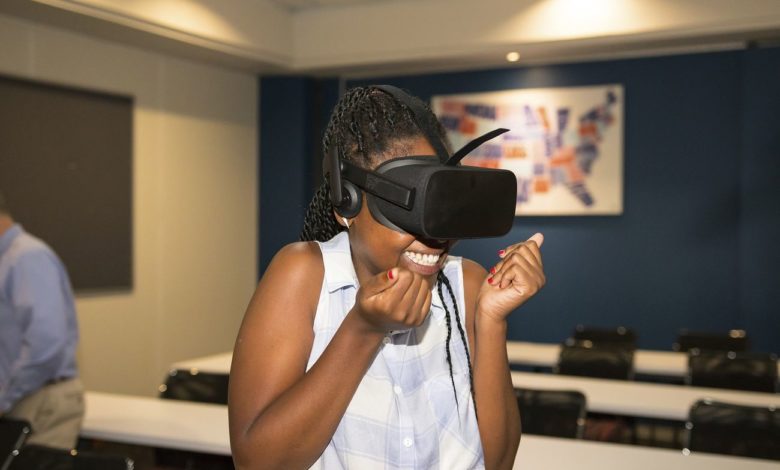
Virtual reality – also known as VR – technology has made significant strides in recent years, and its impact on various industries has been significant. One such industry that has the potential to benefit greatly from VR technology is the sports betting sphere. Even the new emerging betting markets in South Africa, Kenya and other African nations thoroughly analysed by Match.Center, a platform that examines bookmaker activity and provides betting advice, are becoming increasingly aware that VR is going to shape the future of sports betting. Nowadays, VR looks to have the potential to revolutionise the way in which people bet on sports. It looks set to offer a new level of immersion and excitement for all levels of punters.
Sports betting appeared centuries ago and has traditionally been done in person at physical betting shops or through online betting platforms. However, the rise of VR technology has opened up new avenues for sports betting that were previously not possible. With VR, sports bettors can now experience a virtual environment that simulates a real-life sports arena or stadium. This environment can be used to place bets on various sports events, giving bettors an interactive and immersive experience.
Needless to say, that the impact of virtual reality on the sports betting sphere is theoretically limitless. While the introduction of virtual reality is still in its infancy, it certainly looks to have investors talking. As with any sports betting innovation or trend, there will be plenty of countries around the world looking to get on board with the virtual reality revolution.
Enhancing the Overall Betting Experience
One of the primary benefits of VR technology in the sports betting industry is its ability to enhance the user experience. VR offers a more engaging and immersive experience than traditional online sports betting. In a VR environment, punters can see the action unfold in real-time, allowing them to make informed decisions about their bets. They can also interact with other bettors and participate in virtual communities. This provides a social aspect that is not possible in traditional online sports betting. It is more in line with other aspects of society, such as social media.
Another benefit of VR technology in sports betting is its ability to provide more accurate and up-to-date information. VR environments can be designed to provide real-time data and statistics, giving players an edge over traditional sports betting methods. This can be particularly useful for live and in-play betting, where users need to make decisions quickly based on real time events. With VR, punters can access real-time data and make informed decisions, a key skill to have in the heat of the moment when placing a sports bet.
Improved Betting Security
VR technology also has the potential to increase transparency and fairness in sports betting . VR environments can be designed to be in theory impenetrable, reducing the risk of fraud and manipulation – something that the industry has long battled with.
This can be particularly significant online, where bettors rely on digital systems to place their bets. With VR, bettors can be confident that the betting process is fair and transparent. This increases the credibility of the sports betting industry and in turn, the overall level of trust punters have when placing a bet.
In addition to enhancing the user experience and increasing transparency, VR technology has the potential to increase the reach of sports betting. With VR, sports betting can be made accessible to a wider audience, including those who may not have access to betting shops or online platforms. VR can also be used to bring sports betting to new markets, including countries where traditional betting methods may not be available.
However, it is critical to note that VR technology in sports betting is still in its early stages and has some limitations. One of the biggest challenges is the cost of VR hardware, which is still relatively expensive. This can make it difficult for some people to access VR sports betting, particularly those in developing countries, a challenge that is being felt globally.
Additionally, VR technology requires a high level of technical skill to operate. This can be a barrier for some, particularly for rookie punters or those who are new to sports betting.
Moving into the future, VR technology has the potential to revolutionise the betting industry by offering a more immersive and interactive experience. This will play a part in increasing the reach of an already growing industry.
However, there are still some challenges that need to be addressed, including the cost of VR hardware and the technical skills required to operate VR systems. Nevertheless, VR technology is an exciting development in the betting sphere, and its impact will likely become more pronounced in the years to come.











